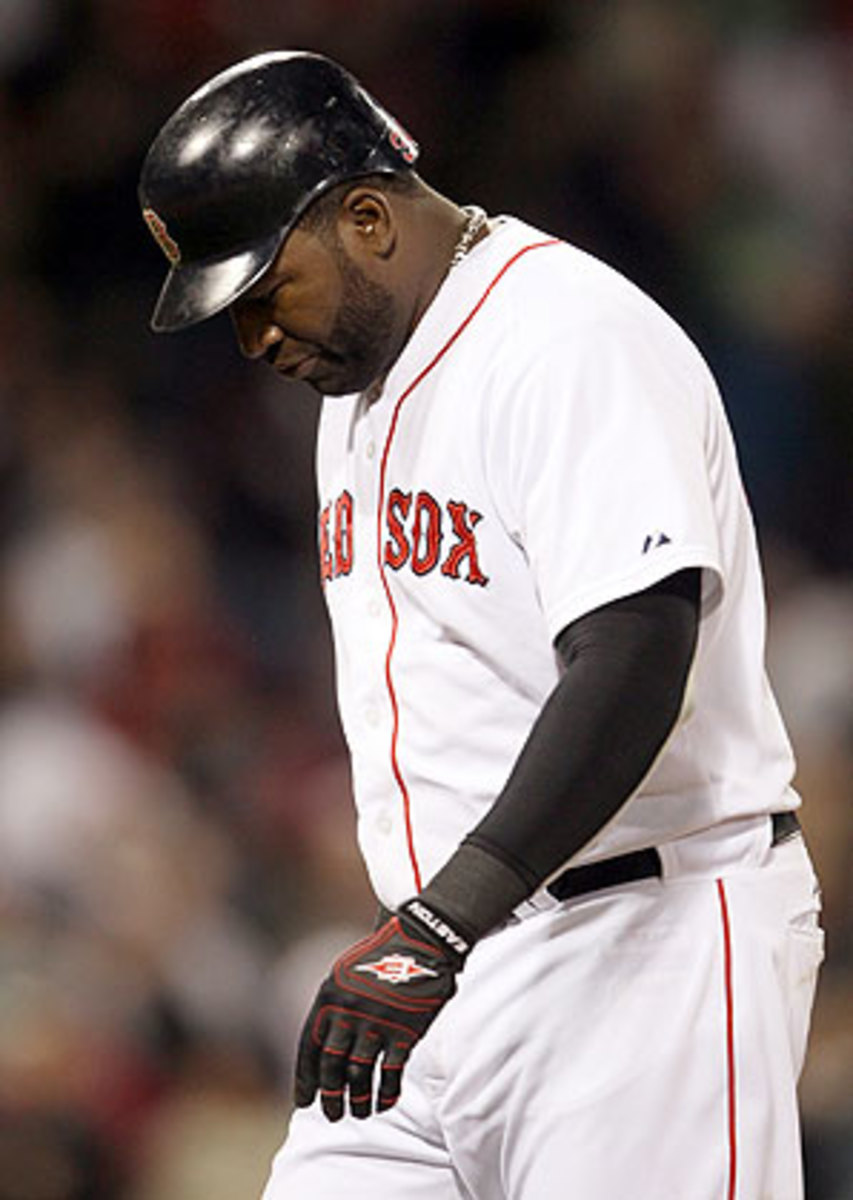So what if it's only the middle of April? It's never too early to panic
Most fans know, instinctively, that it's never too early to panic. Panic is the default setting for sports fans. I like to get in on the ground floor of a good panic myself, and then take an elevator to the roof, where a SWAT team has to talk me down with a bullhorn.
My father says the same thing every Opening Day: "The Twins just don't have the starting pitching to contend." Every year the team contends, at which time he repeats his pitching fears to explain why the Twins won't get past the Yankees in the playoffs.
And that's the beauty of panicking. Eventually you're proven right. On M*A*S*H, Frank Burns asked: "Why do people take an instant dislike to me?" To which Trapper said: "It saves time, Frank." Panicking in the first week of the season is like that. It saves you the trouble of waiting six months to have your suspicions confirmed.
So we panic. For every action in sports, there is an unequal and opposite overreaction. Brewers' closer John Axford saved 24 games last season, but when he gave up four runs in the ninth to blow the save on Opening Day this year, fantasy owner dropped him like a greased melon.
The fact that Axford got three saves in the following week misses the point. Panic, by definition, is irrational. It means losing one's head -- or at least obscuring it. That is why some Red Sox fans in Cleveland wore paper bags over their heads in the sixth game of this season. The sixth game.
"We're four games out with 153 to play," Sox second baseman Dustin Pedroia said on Monday, after his team's 16-5 loss to the Rays, a case of a stoppable force colliding with a movable object. "I'm not very smart, but it looks doable."
Of course it's doable, and the Sox will recover, but where's the fun in saying that? The fact is -- chafing aside -- it feels good to wear a paper bag over one's head from time to time. There's instant gratification in panicking, in saying, with an air of resignation, that slow-out-of-the-gate Derek Jeter will not improve, that he'll finish the season hitting .206. Or that the 2-9 Red Sox just might threaten the 1899 Cleveland Spiders, who finished 20-134, for the worst record in major-league history.
Indeed, fans of those Spiders -- who lost 24 straight and finished 84 games behind Brooklyn -- had a duty to panic. Panic, in that case, is the rational thing to do.
If a dream is a wish your heart makes, panicking is a bet your heart makes, a bet that says your team is going to lose. Once you've worn a Stop N Shop bag on your head in the first week of April, you're all in, and your team's later success becomes a rebuke to you.
It's not unlike financial speculation, which is why we associate panic primarily with financial crises: panic buying, panic selling, the Great Panic of 2008. It's a panicky time, this great recession, borne out by the popularity of panic rooms and call-in radio. Both are windowless bunkers that allow our worst fears to run wild.
Panicking can turn us into prophets -- we told you, in April, the Red Sox stink --and is the photographic negative of jumping on a bandwagon. There is distinction, too, in disembarking that wagon before anyone else does.
And really, what harm does it do? No one ever died of panic, notwithstanding the headline in The Daily Star of Dhaka this week: "Bangladeshi Imam Dies of Panic." Many have died in panics, but these real panics have no relation to sports panics, in which a "panicked" GM makes a "panicky" trade to appease a "panicked" fan base. Sports panics aren't real.
They might not exist at all. Certainly no two people have the same idea of what constitutes a panic. After the same Knicks game last month, Carmelo Anthony said, "There's no need to panic" and coach Mike D'Antoni said, "I thought we panicked."
The definition remains elusive, but as Red Sox manager Terry Francona said to WEEI radio in Boston: "I think there's a difference between being concerned and being panicked." And he's right. Being concerned is a drag, a bottling up of one's worries, an unhealthy drain on your energies. Panicking, on the other hand, is a proactive release. It gives your worries somewhere to go.
"We experience moments absolutely free from worry," the writer Cullen Hightower observed. "These brief respites are called panic." Enjoy them while you can.





